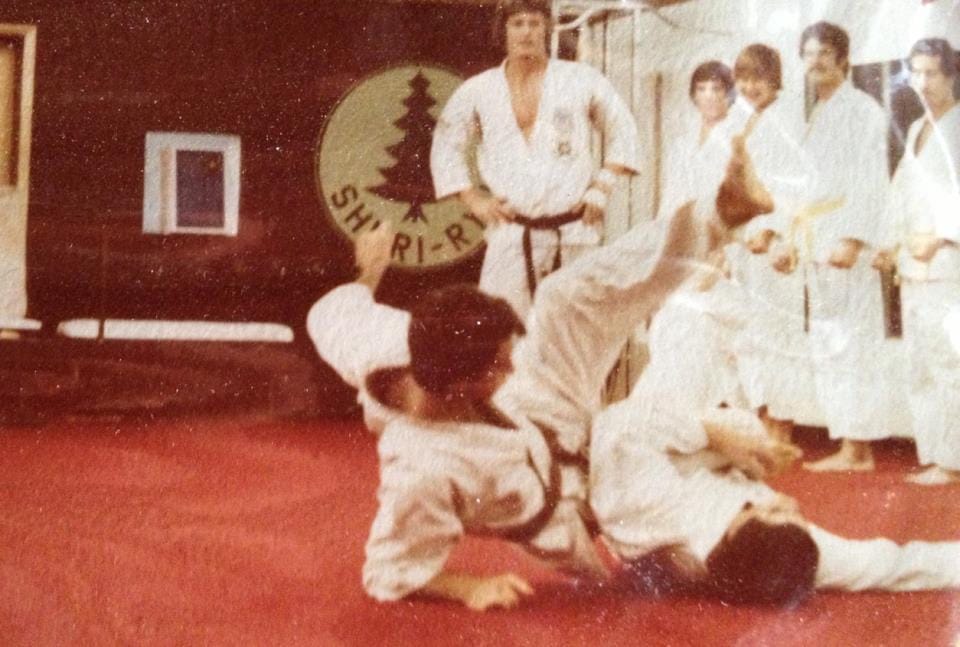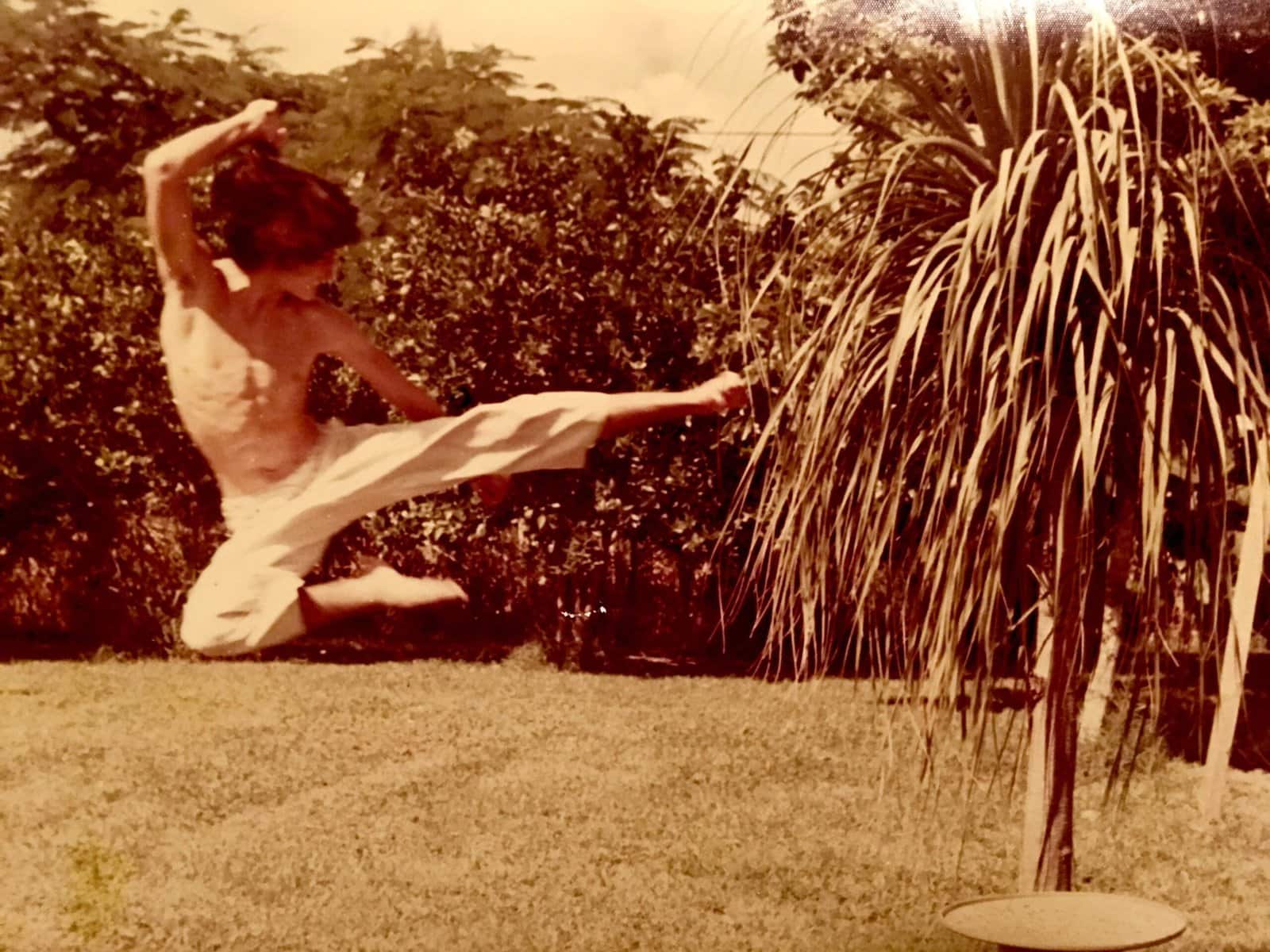
Obsessed, 13 years old training 8 hrs a day
Life is messy. It’s not supposed to be perfect. If you wait for perfection, you’ll never move forward. Messiness is about embracing the imperfections, the mistakes, the anxiety, and the fear—and doing it anyway. It’s about living in full, vibrant color, even when the picture isn’t clear.
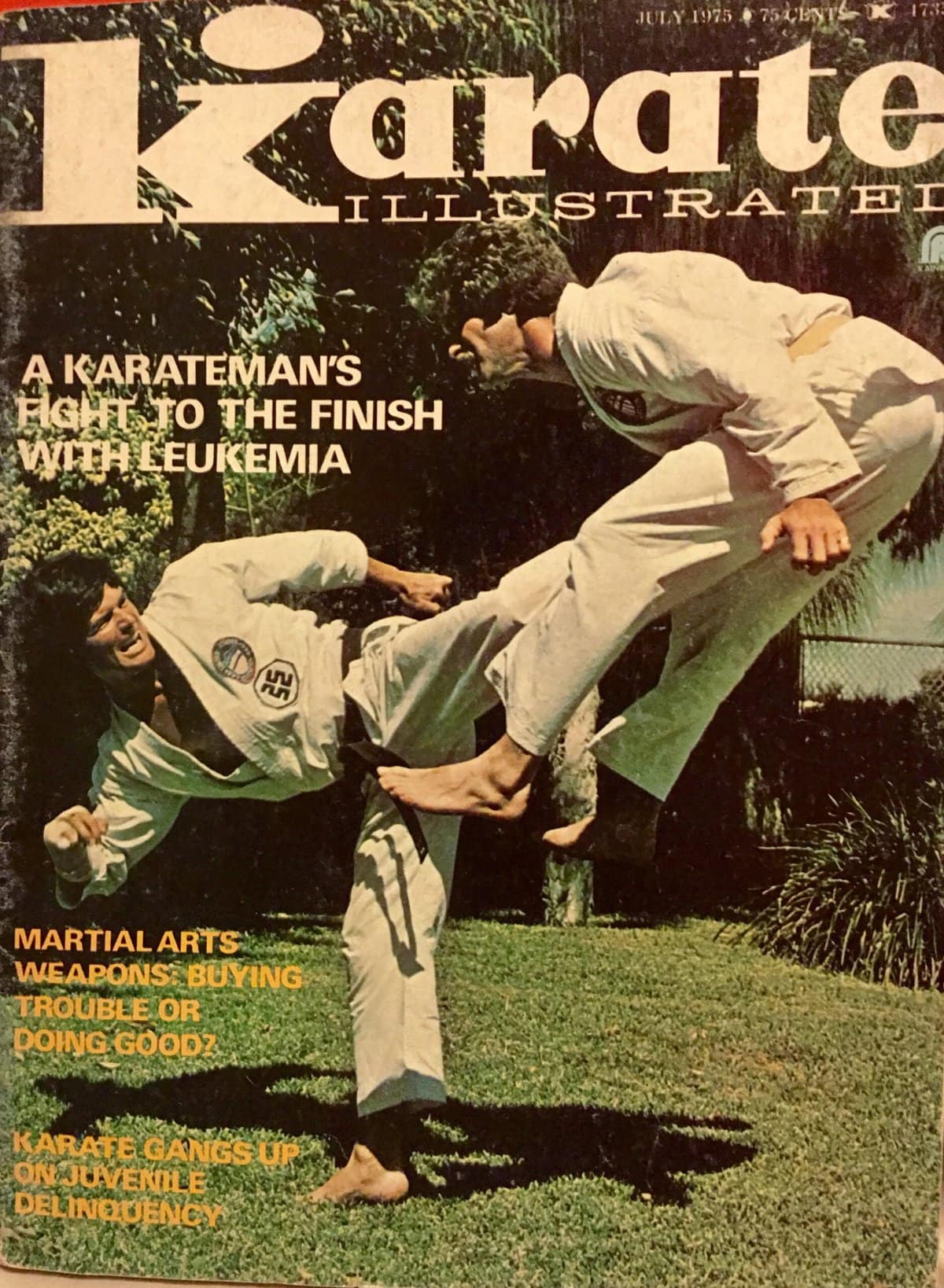

I learned this lesson in the most intense way possible, back when I was much younger.
I competed in Karate, but even as I threw myself into the art, I was never quite at my ideal best. I always had some injury—usually more than one. There were days when I thought, I should have trained harder, longer… I should have pushed myself more.
Even though I spent every minute I could, pushing myself to the edge of pain, exhaustion, and sometimes even passing out, it never seemed like enough. I was obsessed.
But I had the best teacher I could have asked for—Dr. Mel Wise, the best Sensei ever. He ran a dojo where nobody was perfect. You could never know Karate, only study it. Even if you won a first-place trophy at a tournament wearing a black belt, you’d return to the dojo and slap your brown belt back on. We were all punks in his dojo, constantly learning, constantly battling our own limitations. Sensei—he was battling Leukemia!
Sensei gave his students a be humble, but give it your all and never quit attitude! His training and wisdom saved me, and other people over the years. Here is just one example: Stopping a Murder Wasn’t the Plan for My Summer Job
“I think I only went to college because it was close to the karate school.”
https://www.brainyquote.com/quotes/michael_israel_805077
And Sensei didn’t care about trophies, he cared about heart!
One example that sticks out was the time we went to a major tournament, and Sensei made us all stay awake all night before the competition. No sleep for any of us. No excuses. The next day, when the tournament began, I was running on fumes, but Sensei didn’t care. He said, “No excuses for warriors.”
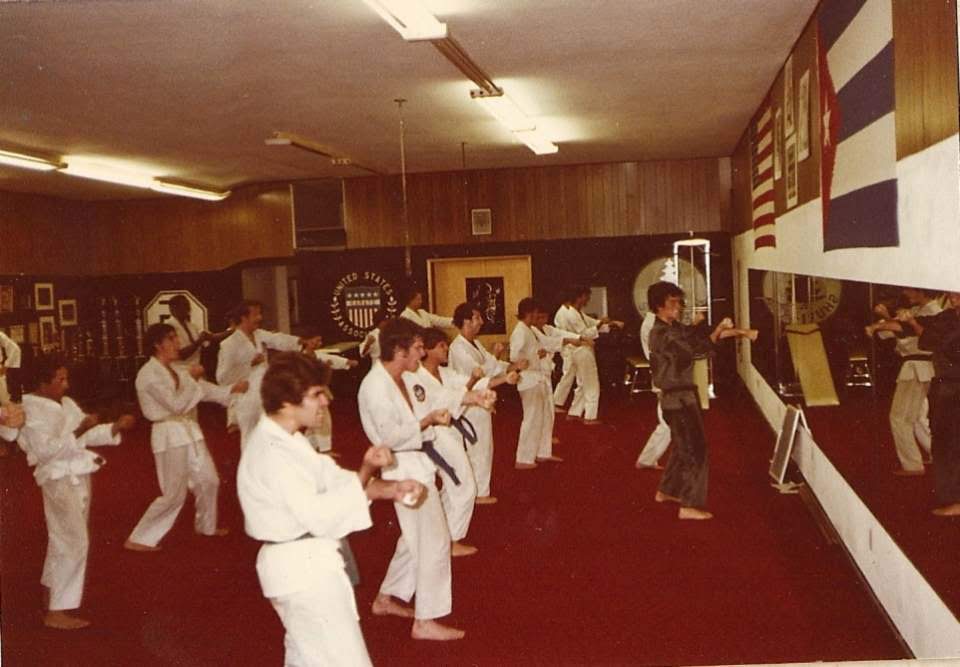
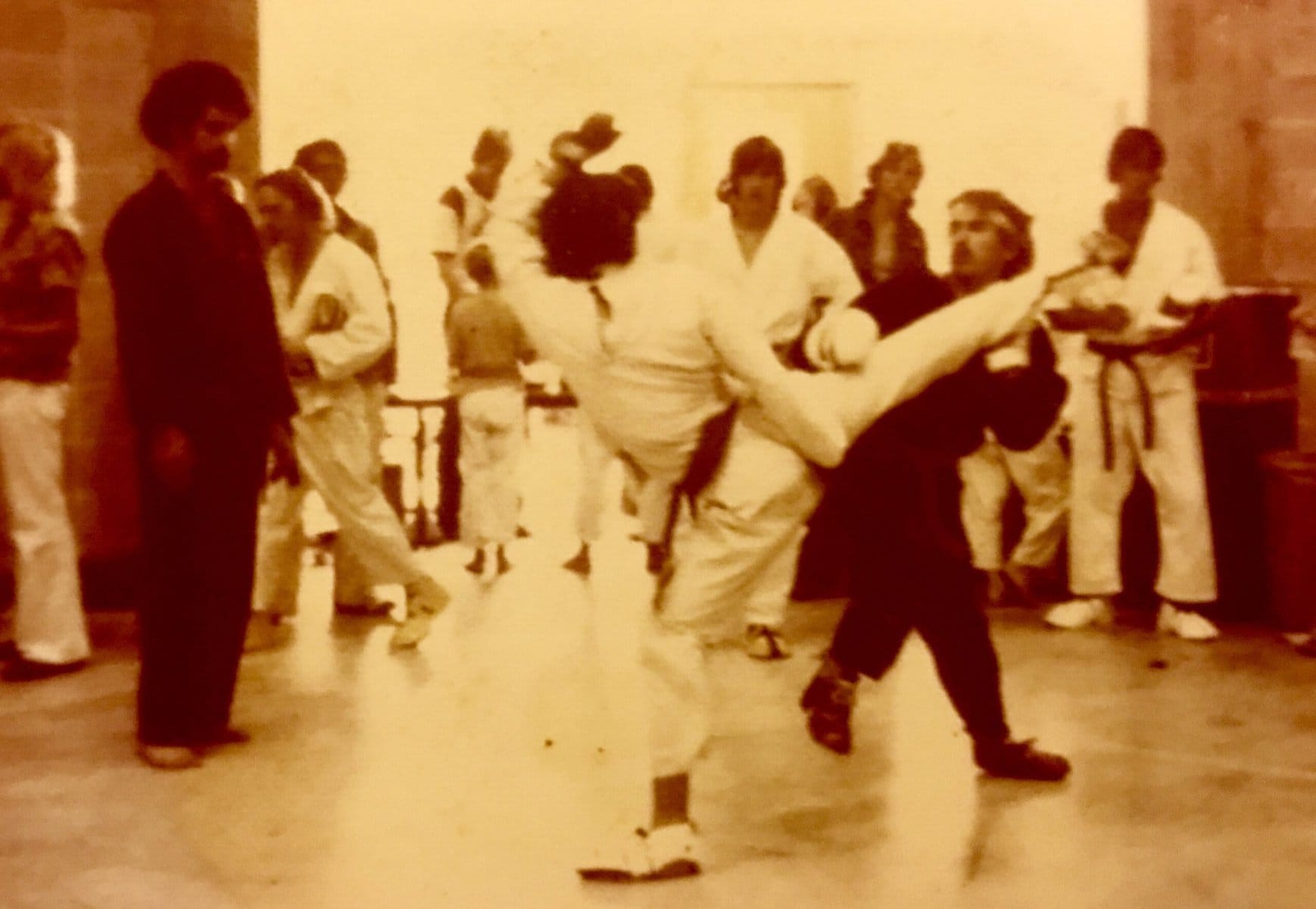
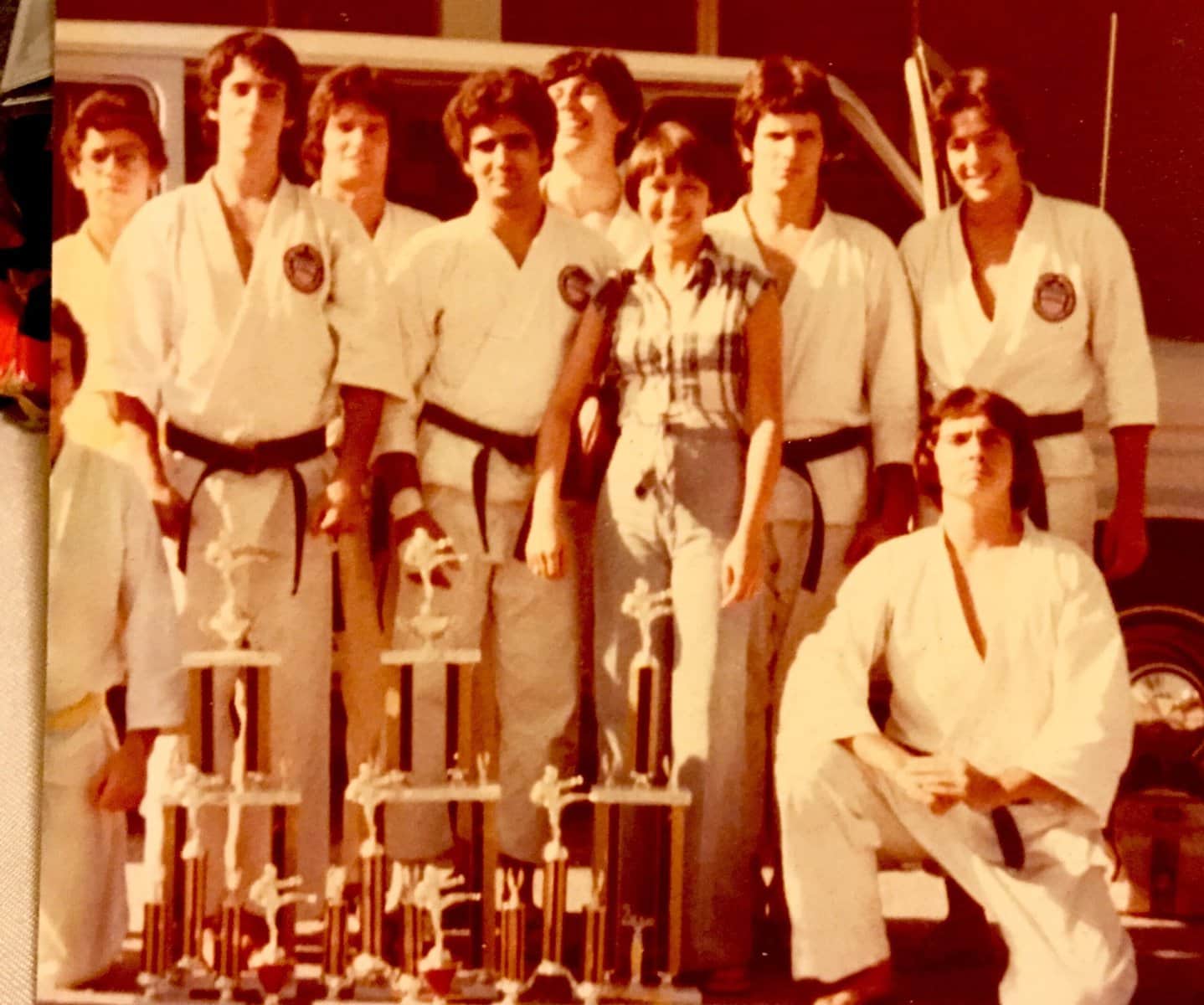
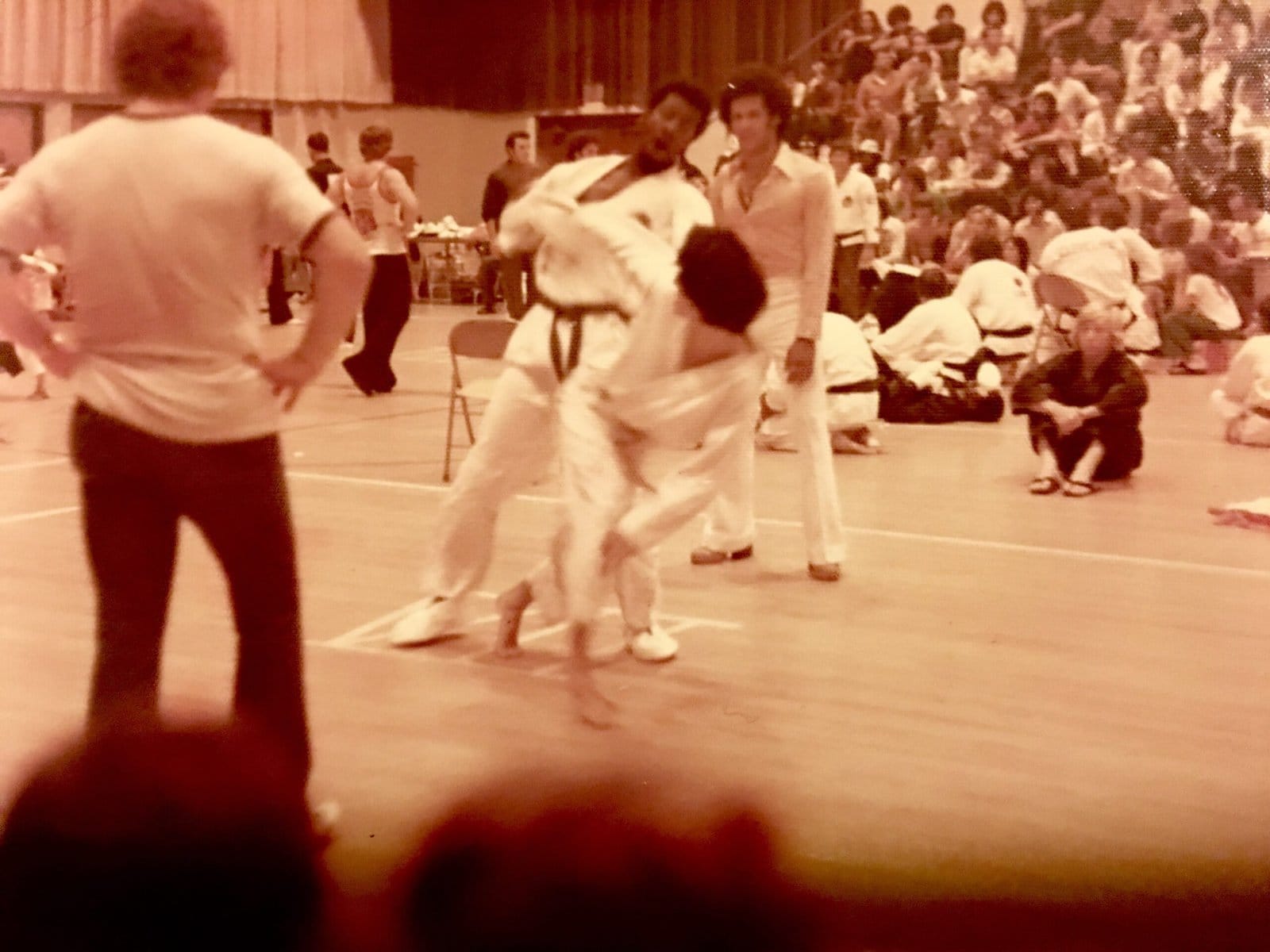
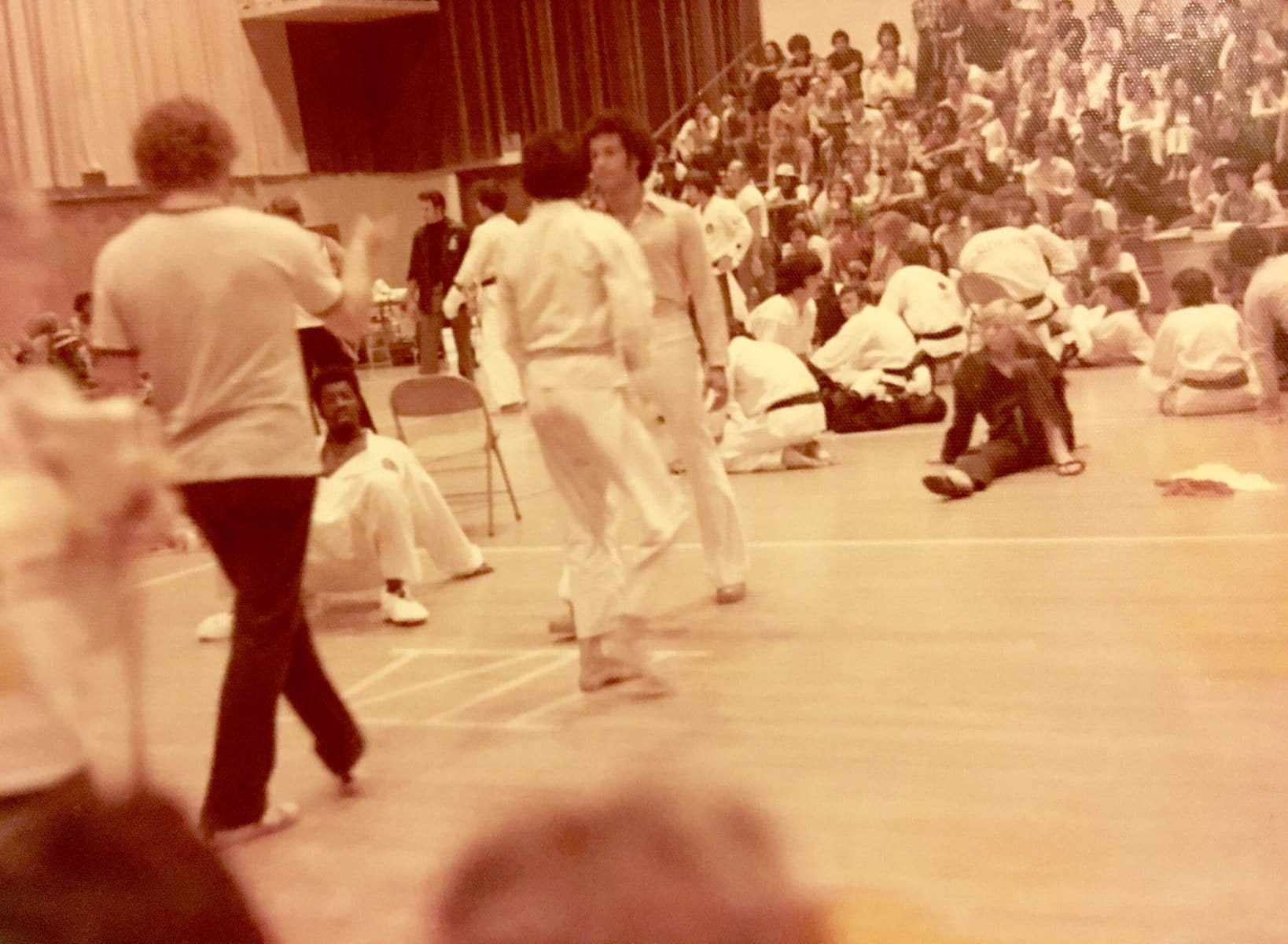
There was another time I was sick with the flu, feverish, shaking, my body aching. I had zero energy. Normally, I would’ve stayed home to recover, but the tournament was waiting for no one. I was thirteen, and on a good day, I weight in at about a hundred pounds soaking wet.
Kids division, right? Wrong. Sensei threw me into the men’s division. Some of those guys weighed over 200 pounds—twice my size.
But that didn’t matter. Sensei didn’t care about excuses. Whether I won or lost, it was about pushing through, no matter the odds.
Sure, I kicked ass, winning in forms. Despite the flu and size differences, I beat my first four opponents. But, by the fifth fight, I was spent. I collapsed, passed out from exhaustion. But the point wasn’t about winning—it was about showing up, fighting with everything you had, getting up again and again, even when your body was telling you to stop.
That lesson stuck with me as I tested for my black belt, a pivotal moment in my journey. I was seventeen, and we’d driven from Miami to Pittsburgh for the USKA Grand Nationals. There were black belts from all over the world. But the night before the competition, I had my test. This wasn’t just any test—it was a test in Grandmaster Trias’s suite, with the most prestigious promotion board in Karate: Master Trias, Bob Bowls, Mike Sheen , and Sensei Wise himself. There a story about me and Mike Scheen, but I will leave that for another time.
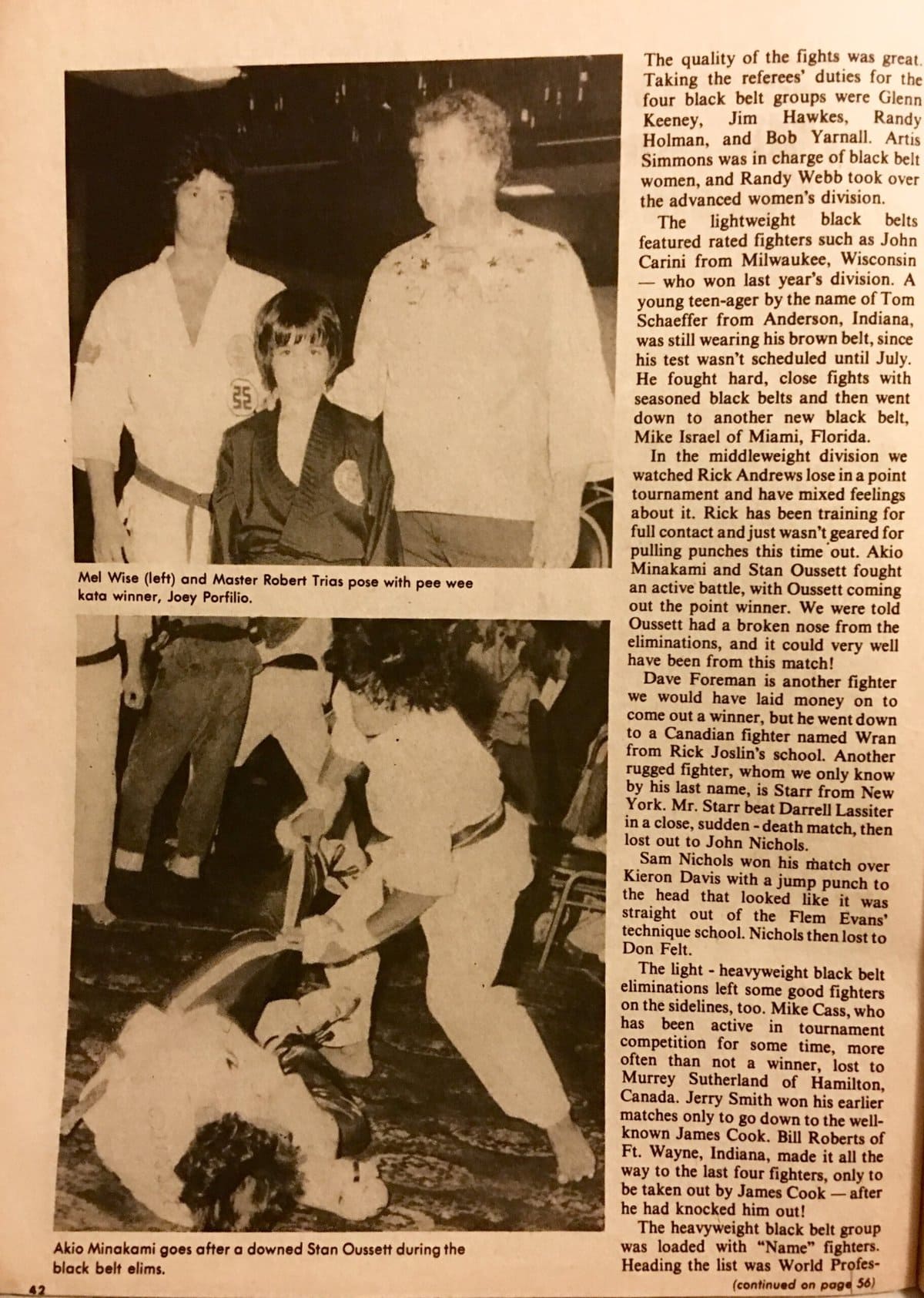
I wasn’t worried about competing the next day. I was worried about surviving the test without winding up in the hospital. I was tired from the long drive, feeling underprepared, unsure. I was still a punk in my own eyes, and the idea of getting a black belt seemed almost laughable. But I knew one thing—I was going to give everything I had—no holding back, no excuses. I didn’t care if it broke me. I was going to war. Honestly, I was ready to die if I had to.
The test began with us seated formally, then, after an hour, my legs went numb. My mind was in overdrive, trying to process each question. On page six of the blue belt manual, what does it say about such-and-such? I had no idea! We didn’t use manuals!
The more questions I missed, the worse I felt—I don’t think I answer one correctly the entire time. My ego shattered. My self-doubt crushed me, but I couldn’t stop. It was just the beginning. Next came techniques—moves I’d practiced for years—but Sensei Wise tore each one apart. “That’s weak! Do you really think you could stop anyone with that? That’s sloppy!”

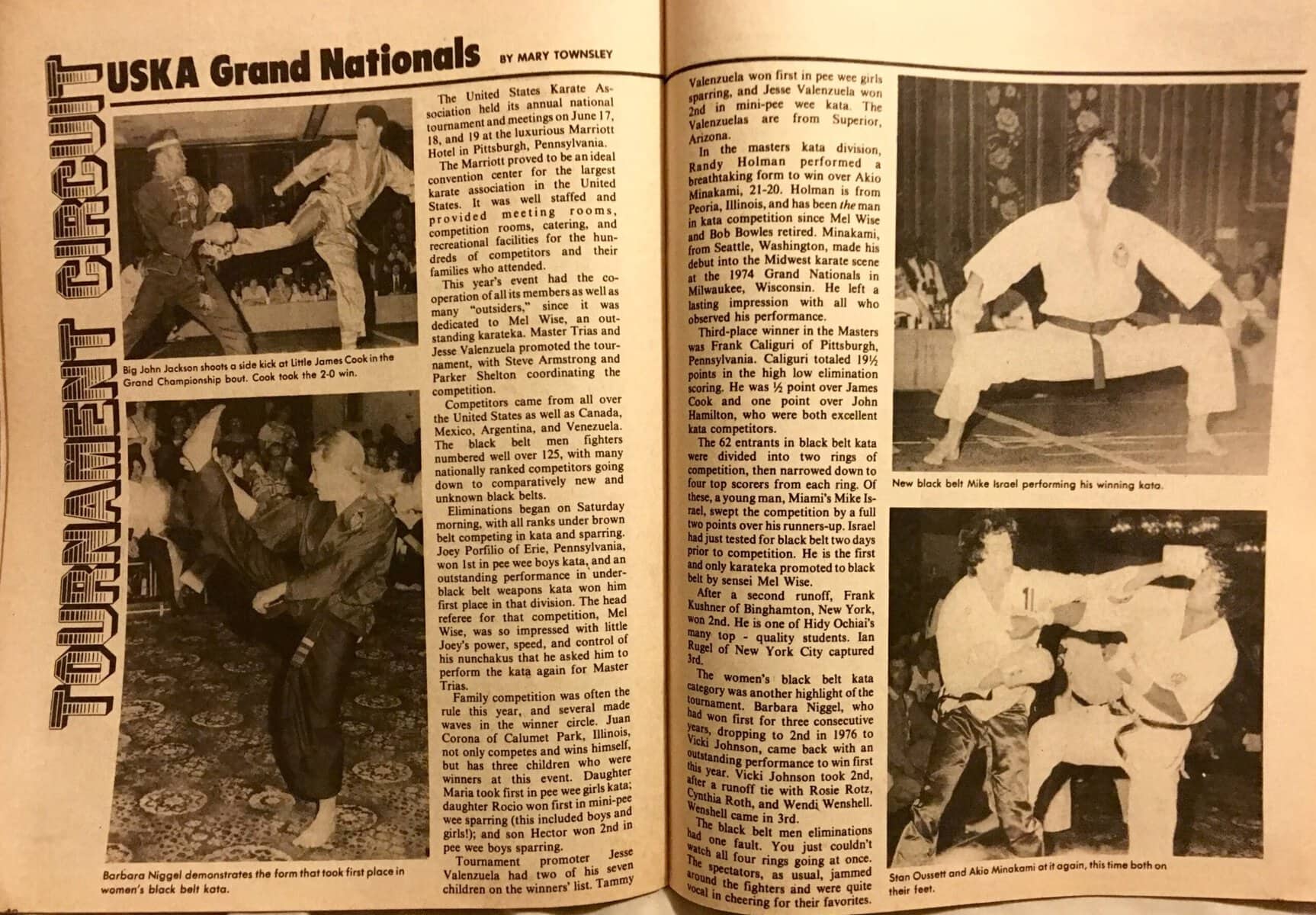
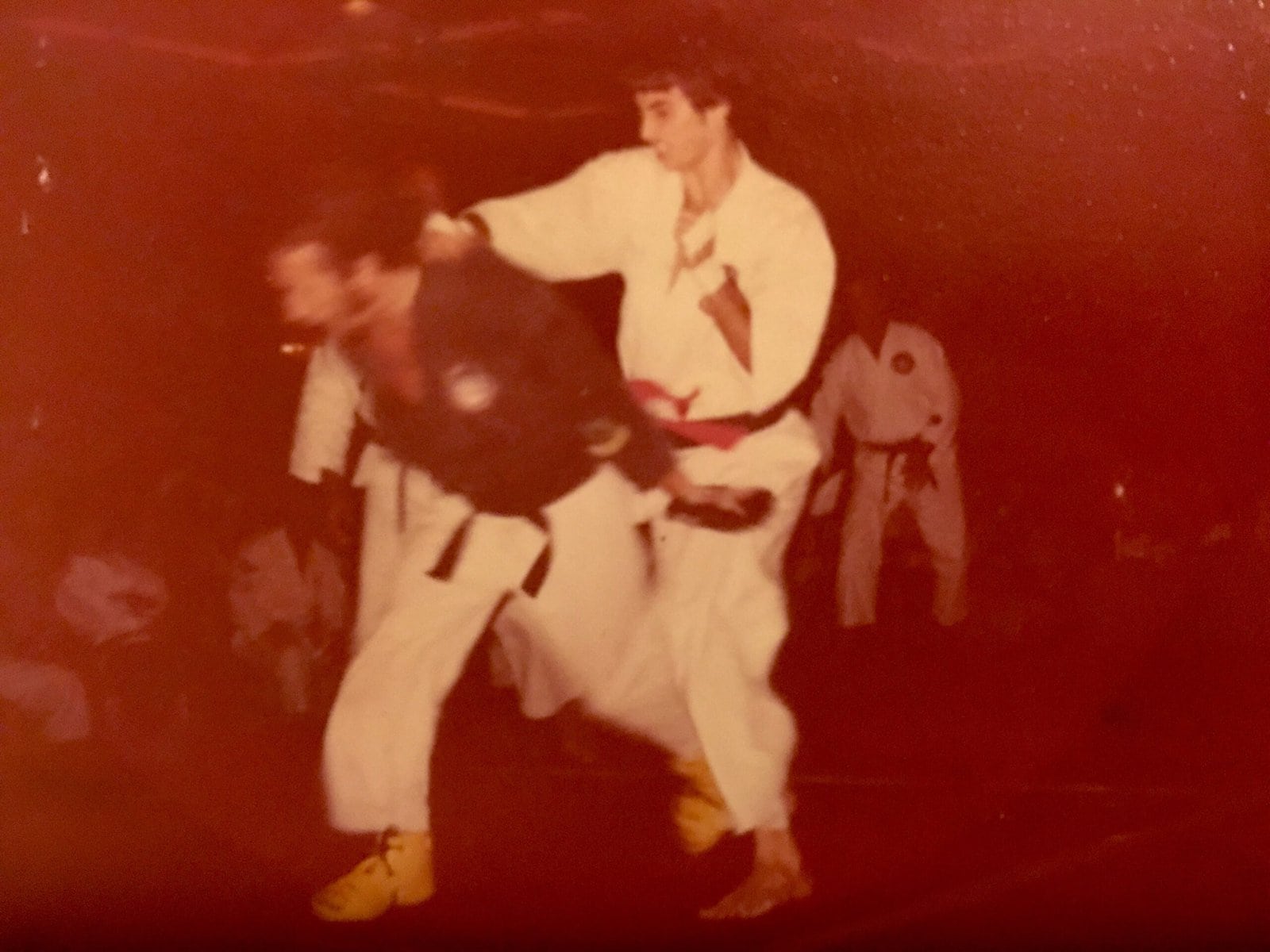
Then, Kata—the very core of Karate. But this time, it wasn’t just me practicing in the air. I had to perform Kata with bunkai—actual sparring, with black belts attacking me—and these guys were in front of the Master and Chief Instructors so they were going all out! They didn’t hold back, not even for a second, if I missed a block, it would be all over. But in one of the first Katas, in the middle of a throw and—I threw my opponent so hard, he bounced off the ceiling so hard that the whole room seemed to shake. I could almost hear the panic in Sensei Wise’s voice, “Watch out for the ceiling!” That’s when I realized, I could use the small room to my advantage.
After Kate came Kumite—sparring. Four opponents, all seasoned fighters—no holding back. I had a plan: I wasn’t just going to fight them. I was going to use them as wrecking balls. I sidestepped the first attack, kicking one opponent into a table so hard it flipped, sending papers and pens flying. But I didn’t stop. I barreled over him, slamming both of us into the wall with a loud thud, knocking things all over the place. That’s when I heard, “STOP!” we’ve seen enough. That was fast, did I fail already?
Master Trias was silence.
He stood up, turned to the other judges, and they went into another room. The tension in the air was thick, and I had no idea what they were thinking. Had I gone too far? Was I too messy? Too chaotic?
Time felt like it had stopped, but it didn’t matter. Somewhere, in that test, did I get complacent. Did I lose my edge, the one thing that had carried me this far. The reality of life hit me: it was chaotic, messy. We are taught to plan, to organize, to work towards perfection—but things don’t always go as planned. They get messy.
If you’re obsessed with perfection, you’ll quit before you achieve greatness. If you accept the mess and persist through the chaos, then, and only then, will you see the masterpiece unfold.
As I sat there, waiting for the decision, I thought of the quote that had always stuck with me:
“It’s a terrible thing, I think, in life to wait until you’re ready. I have this feeling now that actually no one is ever ready to do anything. There is almost no such thing as ready. There is only now. And you may as well do it now. Generally speaking, now is as good a time as any.” – Hugh Laurie
The universe is a mess. But maybe, just maybe, that’s the way it is supposed to be, where the magic happens.
What decision would Master Trias and the board make? Would I rise from this mess, or would I be crushed beneath its weight?
To be continued…
Michael Israel’s first exposure to martial arts was in Judo at age 6. At age 8, he began studying Goju-Ryu Karate under Tim Healy, a neighbor who gave Karate classes to the neighborhood kids from his garage for $2 a lesson. More about Michael’s training coming soon.

